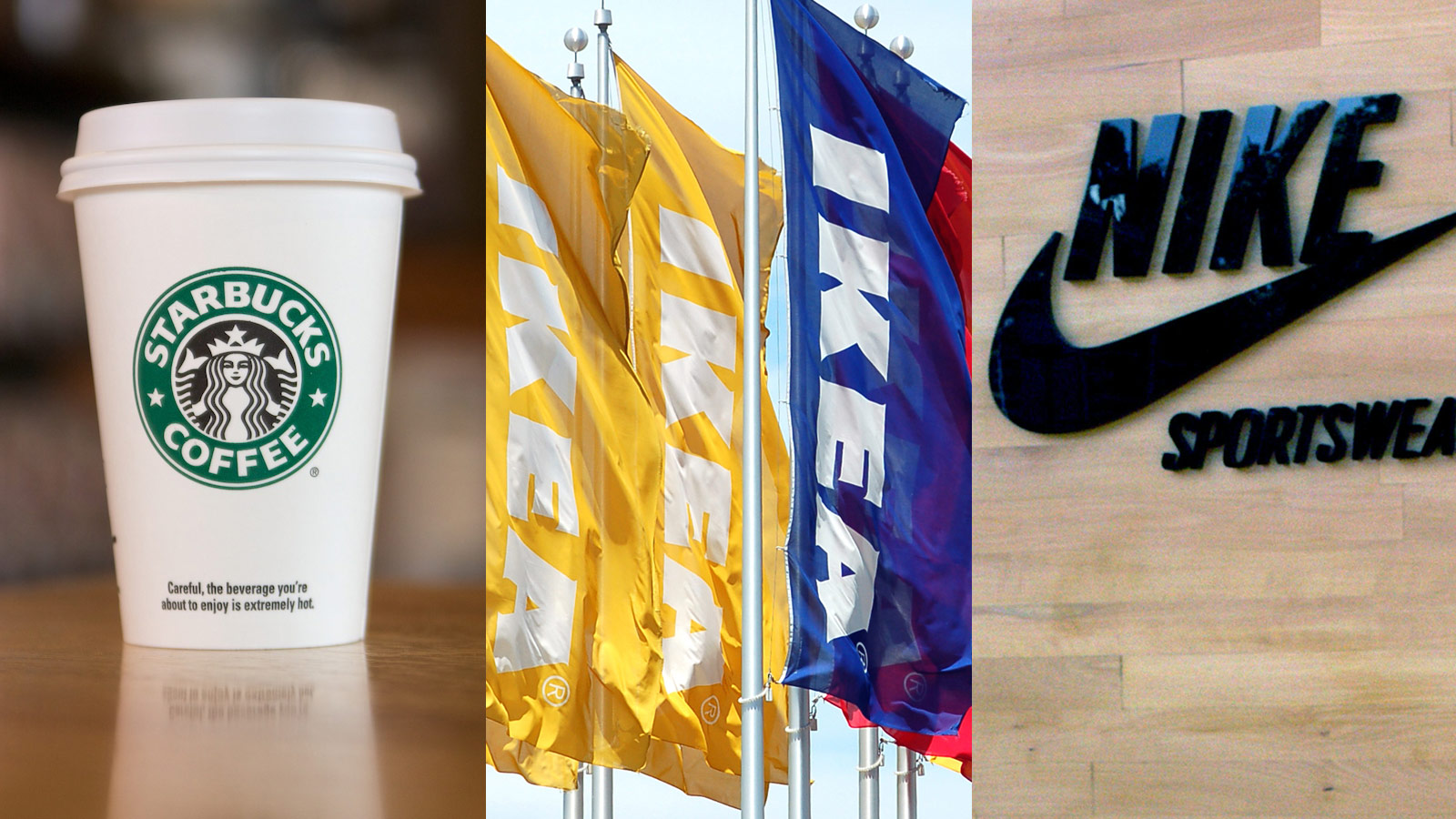Obama’s plan to regulate carbon dioxide emissions from power plants “is a dagger in the heart of the American middle class, and to representative Democracy itself,” said a poetic-feeling Sen. Mitch McConnell (R-Ky.) back in June. He went on to claim the plan would mean “higher costs, fewer jobs, and a less reliable energy grid.”
“Nope,” said Nike, Starbucks, and 221 other companies on Tuesday in a letter to President Obama. (I’m paraphrasing).
The plan, which would cut carbon pollution from power plants by 30 percent over 2005 levels, will, the EPA estimates, cost between $7.3 billion and $8.8 billion to implement, but will save between $55 billion and $93 billion in public health and climate change–related costs. (It will also save thousands of lives, if you want to factor that into the equation.)
The letter, signed by other major household names like Ikea, Kellogg’s, and Nestle, and organized by the sustainable investment group Ceres, frames the plan as good fiscal policy. It explains that these 200-plus companies’ support is “firmly grounded in economic reality. We know that tackling climate change is one of America’s greatest economic opportunities of the 21st century and we applaud the EPA for taking steps to help the country seize that opportunity.” It continues:
The new standards will reinforce what leading companies already know: climate change poses real financial risks and substantial economic opportunities and we must act now. We applaud your administration for its commitment to tackling climate change and we encourage your timely pursuit of the finalization and implementation of these standards.
So what was these companies’ motivation for taking a stand? Many of them, the letter explains, have set a goal of getting more energy from renewable sources or decreasing their carbon footprint. “In short, a majority of the world’s largest companies are investing in clean energy and reducing emissions,” the letter says. “Today’s rules will help spur investment and provide the long-term certainty necessary for our businesses to thrive and to meet these goals.” So, if the administration helps the economy become less carbon-dependent through regulation, these companies are for it. (Nike, Starbucks, and a number of these same companies also backed the Waxman-Markey climate bill that passed the House in 2009 but failed to move forward in the Senate.)
This declaration of support for the EPA and the president is a rebuke to those in Congress who, like McConnell, have been echoing the fossil fuel industry’s claim that regulating CO2 from power plants will simply demolish America’s economy. In fact, the administration’s plan poses a threat to only a handful of companies — mostly those that are dependent on mining, moving, or burning coal — whose interests elected politicians seem disproportionately concerned with protecting. If this interest group’s many challenges to the power-plant rules are unsuccessful, the EPA plans to have it finalized by next summer.




